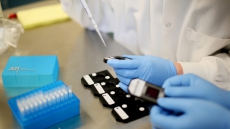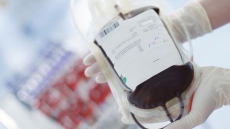Still struggling to come to grips with the notion that fat is good for you? It's time to distinguish between good from the bad and take the best pick.
Naturopathic nutritionist Amy Morris has gathered some of the most common myths about fat and lets you know once and for all why it plays such an essential role in our diets and how to distinguish the good from the bad, reports femalefirst.co.uk.
* Fact: Healthy fats are needed for the body to function optimally
Fat should form an essential part of a healthy, balanced diet. Good fats are needed by the body as they help us to absorb certain nutrients, regulate hormone production and help the growth and repair of tissue. The body does not make essential fatty acids by itself, so it's really important to consume 'good' fats found in flaxseeds and walnuts, or to make sure you are supplementing them into your diet to ensure a healthy balance.
* Myth: The body reacts the same way to all types of fats
Not all dietary fats have the same effect on the body, and a great example of this is coconut oil. Coconut oil is a type of saturated fat, which is converted into pure energy by the body rather than being stored as fat. As well as providing energy, coconut oil won't cause a spike to your blood sugar levels, making it an ideal fat for diabetics to consume in small amounts.

* Fact: Trans-fats are bad fats to avoid
'Trans-fats' are the type of fats to avoid at all costs as research has shown these are the only type of fat to cause weight gain. Whilst some meat and dairy products contain a small amount of naturally occurring trans-fats, the largest and most concerning source of trans-fats in a person's diet today is found in baked goods, margarine, snacks and fried food.
* Myth: Consuming lots of Omega 6 rich fats will give you great health
Processed seed and vegetable oils commonly used in cooking, are much higher in omega 6 than omega 3. With a rise in their use, this is what has driven a very unhealthy balance of these important fats. The ratio of omega 6 to omega 3 has subsequently become too high, resulting in omega 3's pro-inflammatory benefits becoming redundant; at present, the average ratio can be anywhere between 20 to 50:1 in favour of omega 6.
* Myth: Fats cause heart disease
Saturated fat was wrongly labelled as a fat to be avoided at all costs in the 1960s, as researchers thought at the time that consuming it would cause heart disease. However, a 2010 study of 347,747 individuals found absolutely no association between saturated fat consumption and the risk of heart disease.





